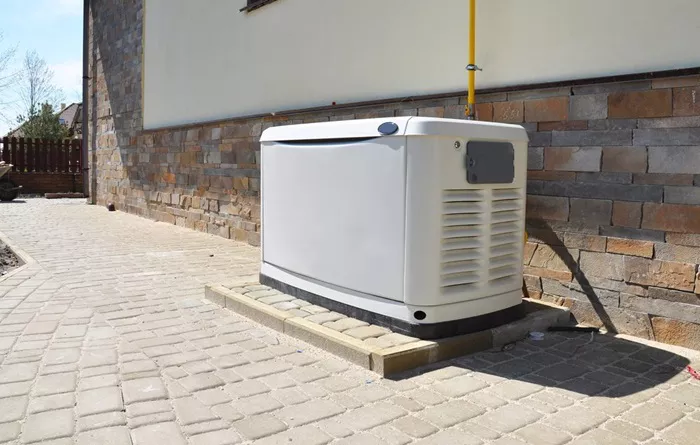When the power goes out, a reliable home generator can be a lifesaver. Whether you’re dealing with a short-term outage or a prolonged blackout, having a backup power source ensures your home stays functional and comfortable. In this guide, we’ll explore the top-rated home generators of 2025, their features, and how to choose the best one for your needs.
Why Do You Need a Home Generator?
Power outages can happen for many reasons—storms, grid failures, or even routine maintenance. A home generator provides peace of mind by keeping essential appliances running, such as refrigerators, heating systems, and medical devices. It’s an investment in safety and convenience, especially for those living in areas prone to extreme weather.
Types of Home Generators
Home generators come in three main types: portable, inverter, and standby. Each has its own advantages and is suited for different needs.
1. Portable Generators
Portable generators are the most affordable and versatile option. They’re easy to move and can power essential appliances during an outage. These generators typically run on gasoline or propane and are ideal for short-term use. However, they require manual setup and should never be used indoors due to carbon monoxide risks.
2. Inverter Generators
Inverter generators are a step up from portable models. They’re quieter, more fuel-efficient, and produce cleaner power, making them safe for sensitive electronics like laptops and smartphones. These generators are compact and lightweight, making them perfect for camping or RV trips in addition to home use.
3. Standby Generators
Standby generators are the most powerful and reliable option for whole-home backup power. They’re permanently installed outside your home and automatically turn on during an outage. While they’re more expensive, they provide seamless power for days or even weeks, depending on the fuel source.
Top Rated Home Generators of 2025
Here’s a detailed look at the best home generators available this year, categorized by type.
Best Portable Generators
Honda EU2200i
Key Features: Super quiet, fuel-efficient, and lightweight.
Ideal For: Powering small appliances and electronics during short outages.
Runtime: Up to 8.1 hours on a single tank.
Champion 3800-Watt Dual Fuel
Key Features: Runs on gasoline or propane, electric start, and a durable design.
Ideal For: Versatile use for home backup or outdoor activities.
Runtime: Up to 9 hours on gasoline or 10.5 hours on propane.
Best Inverter Generators
Generac GP3000i
Key Features: Quiet operation, compact design, and parallel capability.
Ideal For: Camping, tailgating, or powering sensitive electronics.
Runtime: Up to 5.7 hours at 50% load.
Yamaha EF2000iSv2
Key Features: Extremely quiet, fuel-efficient, and lightweight.
Ideal For: Small households or outdoor adventures.
Runtime: Up to 10.5 hours on a single tank.
Best Standby Generators
Generac Guardian 22kW
Key Features: Automatic operation, Wi-Fi monitoring, and whole-home coverage.
Ideal For: Large homes with high power demands.
Runtime: Unlimited with a natural gas connection.
Kohler 20RESCL
Key Features: Quiet operation, durable construction, and advanced diagnostics.
Ideal For: Reliable backup power for medium to large homes.
Runtime: Unlimited with a natural gas or propane connection.
How to Choose the Right Home Generator
Selecting the best generator depends on your specific needs.
Here are some factors to consider:
1. Power Requirements
Calculate the total wattage of the appliances and devices you want to power during an outage. This will help you determine the generator size you need.
2. Fuel Type
Generators run on gasoline, propane, diesel, or natural gas. Consider availability, storage, and cost when choosing a fuel type.
3. Runtime
Look for a generator with a runtime that matches your needs. Standby generators offer unlimited runtime with a natural gas connection, while portable models may require refueling every few hours.
4. Noise Level
If noise is a concern, opt for an inverter or standby generator, as they operate more quietly than traditional portable models.
5. Budget
Generators range from a few hundred dollars for portable models to several thousand for standby units. Balance your budget with your power needs and desired features.
Maintenance Tips for Home Generators
To ensure your generator performs reliably when you need it most, follow these maintenance tips:
1. Regular Inspections
Check for leaks, loose connections, and worn-out parts. Address any issues immediately to prevent breakdowns.
2. Oil and Filter Changes
Change the oil and air filter according to the manufacturer’s recommendations. This keeps the engine running smoothly.
3. Fuel Management
Use fresh fuel and add a stabilizer if storing the generator for long periods. For standby generators, ensure the fuel source is always available.
4. Test Runs
Run your generator for 10-15 minutes every month to ensure it’s in working order.
Safety Tips for Using Home Generators
Generators are incredibly useful but can be dangerous if not used properly.
Follow these safety guidelines:
1. Outdoor Use Only
Never operate a generator indoors or in an enclosed space. Carbon monoxide poisoning is a serious risk.
2. Proper Ventilation
Place the generator at least 20 feet away from your home with the exhaust facing away from windows and doors.
3. Use Heavy-Duty Extension Cords
If connecting appliances directly to the generator, use outdoor-rated extension cords to prevent overheating.
4. Avoid Overloading
Don’t exceed the generator’s wattage capacity. Overloading can damage the generator and connected devices.
Conclusion
Investing in a home generator is a smart way to protect your family and property during power outages. Whether you choose a portable, inverter, or standby model, the key is to select a generator that meets your power needs and fits your budget. By following the tips in this guide, you’ll be well-equipped to make an informed decision and enjoy uninterrupted power whenever you need it.
Related topic:
- 5 Top-Rated Portable Generators for Home Use
- 4 Best Non-Gas Generators for Home Use
- 3 Best Generators for Off-Grid Homes

